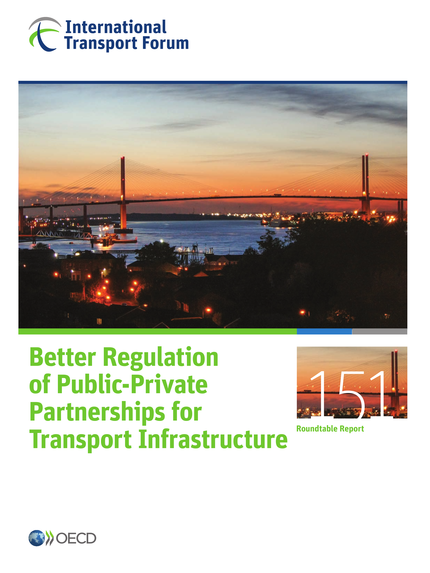Résumé
Many governments seek to attract private finance for infrastructure through public-private partnerships (PPPs) in order to maintain investment at the same time as limiting public spending. Experience with PPPs has, however, been mixed. Some transport PPP projects have delivered major cost savings but many more have exceeded their budgets. PPPs are prone to overestimating revenues and when projects run into financial difficulty, risks have a tendency to revert to the taxpayer.
The report examines the nature of risks and uncertainty associated with different types of PPP project and the practical consequences of transferring risks to private partners. It assesses the fiscal impact of PPPs and discusses budget procedures and accounting rules to limit the public liabilities they can create. The report also reviews the relative merits of tolls, availability payments and regulated asset base models for attracting finance for public infrastructure from private investors on a sustainable basis.
Caractéristiques
Editeur : OCDE / OECD
Publication : 26 septembre 2013
Edition : 1ère édition
Intérieur : Noir & blanc
Support(s) : eBook [PDF]
Contenu(s) : PDF
Protection(s) : Marquage social (PDF)
Taille(s) : 1,1 ko (PDF)
Langue(s) : Anglais
Code(s) CLIL : 3802, 3305
EAN13 eBook [PDF] : 9789282103951
EAN13 (papier) : 9789282103944
Ouvrages du même auteur
Measures of Tax Compliance Outcomes A Practical Guide
16,00 €
Tax Compliance by Design Achieving Improved SME Tax Compliance by Adopting a System Perspective
16,00 €
Increasing Taxpayers' Use of Self-service Channels (Preliminary version)
16,00 €
Working Smarter in Tax Debt Management (Preliminary version)
19,00 €
Water Governance in Tunisia Overcoming the Challenges to Private Sector Participation
23,00 €





